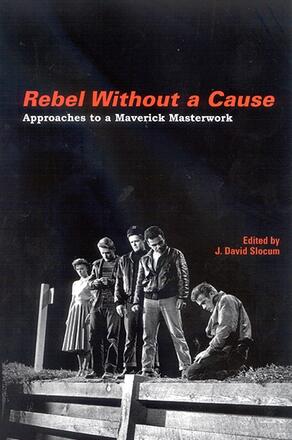
Rebel Without a Cause
Approaches to a Maverick Masterwork
Alternative formats available from:
Assesses the layered meanings and persistent global legacy of an American film classic.
Description
Five decades after the production and initial release of Rebel Without a Cause, this book examines both the complicated historical moment in which the film was made as well as its continuing and pervasive influence on film today. The contributors track how the film continues to speak to diverse audiences as a touchstone for imagined anxieties over adolescence and coming-of-age, traditional values of family and community, threats from abroad, and the provocations of mass or consumer society. Although the specific sources and motivations for rebellion have shifted, what has persisted is the film's singular power to represent rebellion in what could otherwise be seen as the everyday, and to move viewers to ponder its causes.
J. David Slocum is Associate Dean of the Graduate School of Arts and Science at New York University and is the editor of Violence and American Cinema.